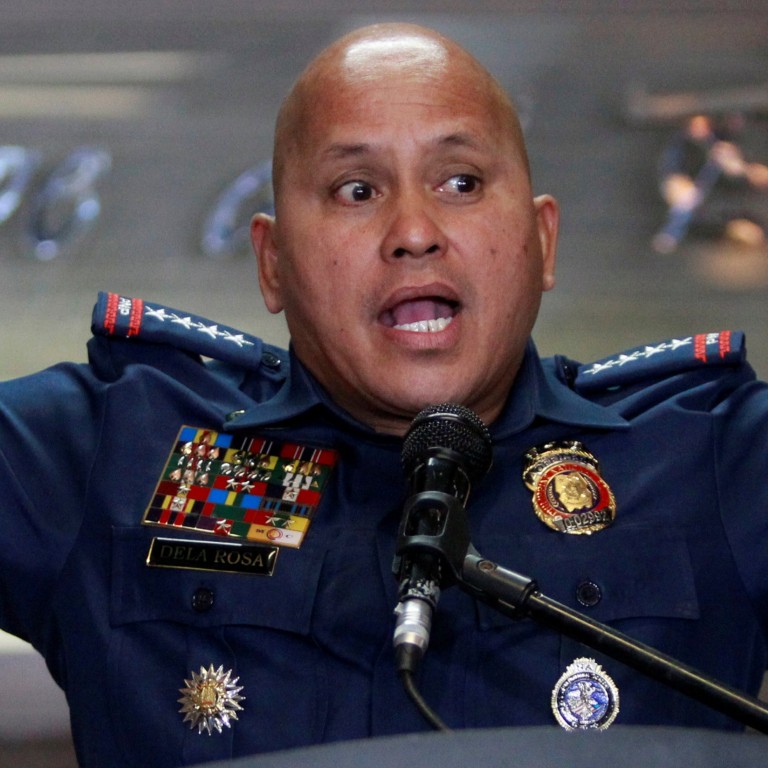
Philippine ex-police chief cites China threat to justify compulsory youth military training
- The Philippines is debating reintroducing compulsory military training for students, but youth groups argue this will cause increased militarisation
- Senator Ronald dela Rosa, who presided over President Rodrigo Duterte’s war on drugs, insisted the ROTC scheme was necessary in case ‘China attacks us’
“You love your country?” the senator widely known as Bato yelled at student leader Raoul Manuel, whose group was objecting to the bill.
“When China attacks us, whom will you get to fight those Chinese? NPA? You will go to the NPA?” he asked, referring to the New People’s Army, the armed wing of the Communist Party of the Philippines.
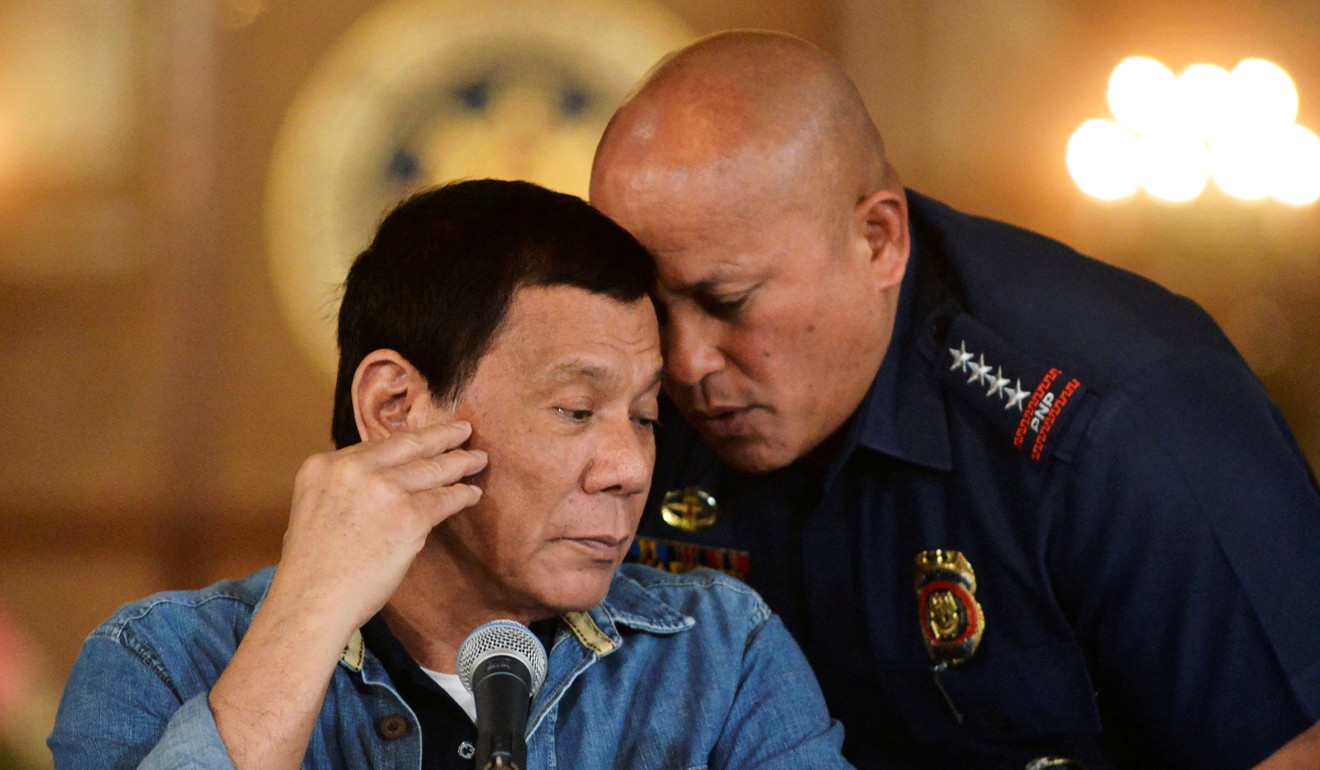
While Duterte was Davao City mayor and was campaigning for the presidency in 2016, he “reportedly justified his support for mandatory ROTC training by saying that it would augment Philippine forces to repel Chinese aggression in the West Philippine Sea”, said Ignacio Bunye, who once served as former President Gloria Arroyo’s spokesman.
However, after Duterte won the election, his aides said he was just joking. And after Duterte strengthened ties with China, he and his aides stopped using the argument of a Chinese invasion to justify a mandatory ROTC.
It was therefore understandable that Dela Rosa’s emotional outburst caught the room full of senators, military officers and government officials at the Senate committee on basic education by surprise.
Dela Rosa, who once broke into tears while testifying as police chief during a Senate committee hearing on the drug war, also said he found Manuel’s remarks personally offensive.
Duterte’s ex-top diplomat who smoothed over China ties arrested
Manuel had been remarking on the inclusion of “human rights awareness” in the new ROTC programme. He said this would be difficult to include as public officials do not agree on the definition of human rights, “especially if we have a senator who will say that it’s okay to free and give a second chance to a rapist mayor, while the poor are easily killed in the drug war”.
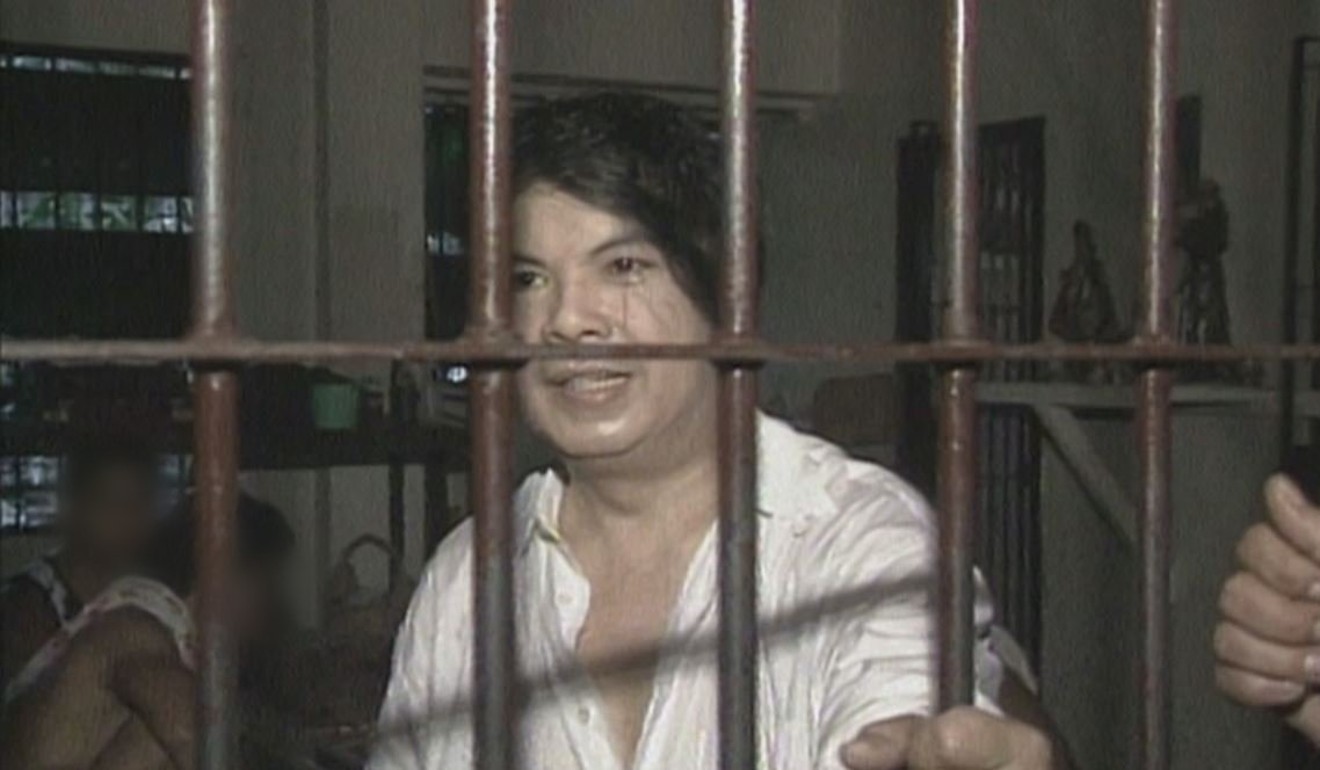
“I take offence on what you said that ROTC is a misrepresentation of nationalism,” Dela Rosa also told Manuel, who represents the National Union of Students of the Philippines (NUSP), which the military has tagged a recruiter for the NPA.
He added that only leftists do not like ROTC and they are in the minority. The NUSP insists that ROTC was part of the creeping militarisation of school campuses.
The senator publicly scolded Manuel and told him that once mandatory ROTC is in place, “you should learn to show respect even to senators... Don’t hit [us] on other issues which are not part of the discussion.”
Before the hearing ended, Manuel publicly apologised to Dela Rosa.
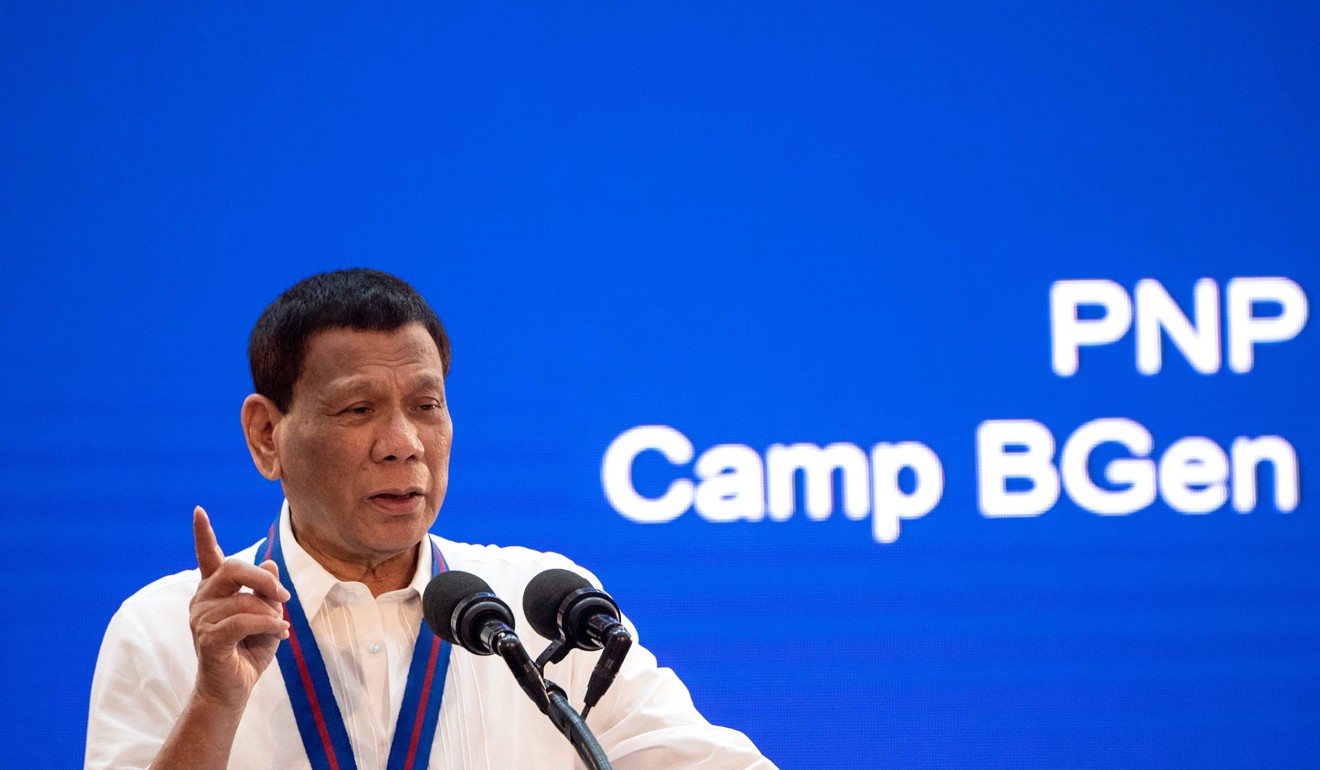
Manuel’s remarks were not entirely irrelevant to the discussion. “Respect for human rights” is part of the proposed ROTC programme of instruction, according to Norman Daanoy, chief of the Department of National Defence legal affairs service.
Besides giving basic military training, Daanoy said the programme will also harness the youth during disasters, teach environmental protection, make them appreciate “the role of national heroes in the historical development of the country” and “develop personal discipline and leadership”
A lot of it was a waste of time
Daanoy also indicated that ROTC was aimed at preventing the NPA from recruiting youths. He said this was why ROTC would be made mandatory in Grades 11 and 12 – which are the last two years of the country’s 12-year basic education programme.
The reason, he said, is that “out of 10 graduates of high school [Grades seven to 12], only two or three can proceed to college. President Duterte said the other seven might join the NPA or go elsewhere”.
Defence Secretary Delfin Lorenza issued a National Heroes Day message on August 26 to urge the youth to take ROTC. “The act of defiance against foreign domination by our forefathers despite overwhelming odds planted the seed of Filipino nationhood that evolved to become what we are now,” he said.
“One good way to instil and nurture love of country is through the ROTC programme in our school system.”
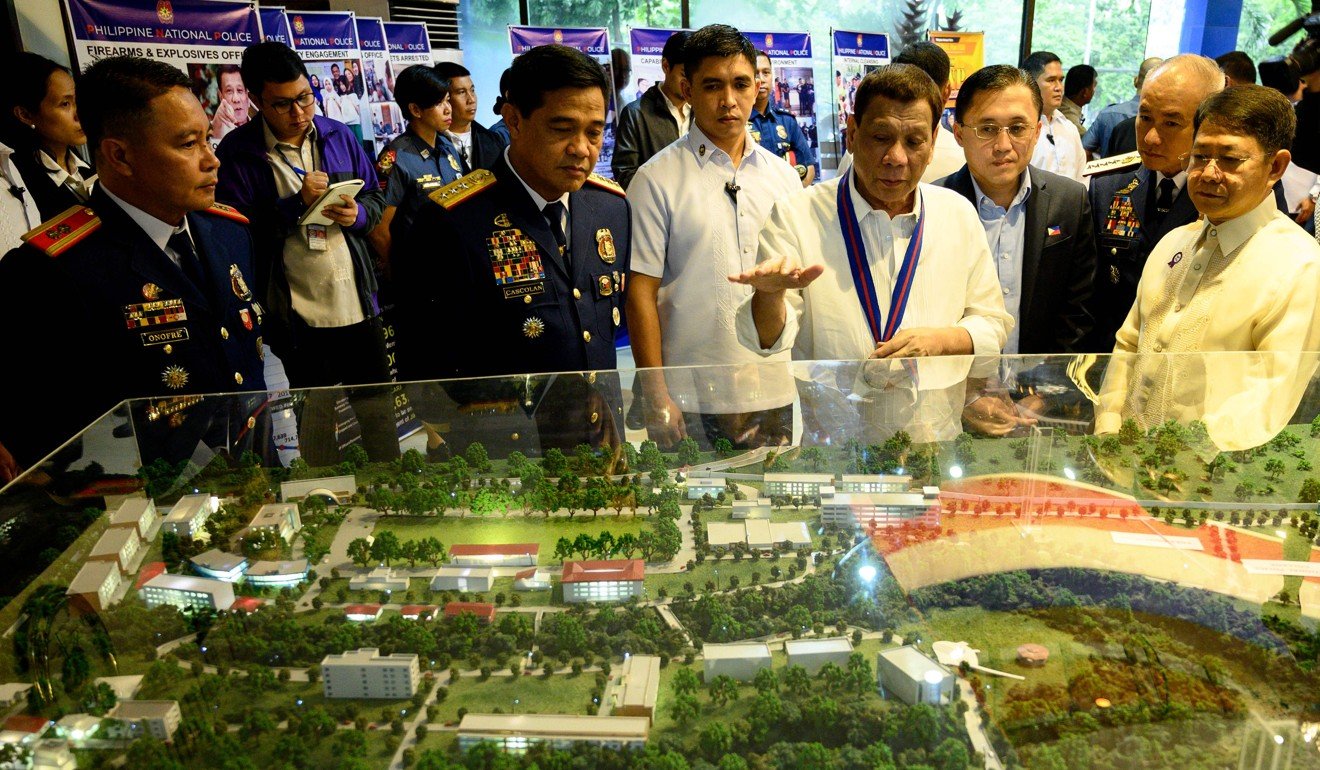
Military historian Ricardo Jose told the South China Morning Post that the programme “is not going to be useful” if implemented in the same way as it was in the 1970s.
He recalled his own ROTC training back then: “I liked it personally because I was studying the military. I liked parts of it – handling guns, map reading… But a lot of it was a waste of time. All you learned was to drill and push-ups. You did not really learn fighting. We were taught very poorly.”
Duterte has publicly admitted to getting out of his ROTC programme early by paying off a man with tuberculosis to use his name while having an X-ray, Bunye said, arguing that making the programme compulsory would not work.
Duterte puts bounty on ‘head’ of rebel leader behind police murders
Jose said ROTC started in 1912 and was compulsory until the 1990s. Between 1972 and 1986, former president Ferdinand Marcos used ROTC as part of his dictatorship’s tool for conscription.
Asked if he thought ROTC would be the answer to an invasion by China, Jose replied: “I don’t think so. Because ROTC is only supposed to be for officers. But you do not have men. Where will you get the men?”
At the moment, the Armed Forces of the Philippines has 125,000 active military personnel, according to Senator Francis Tolentino. Last year, the army announced it was recruiting 6,100 men and women to fill up 10 new battalions.

